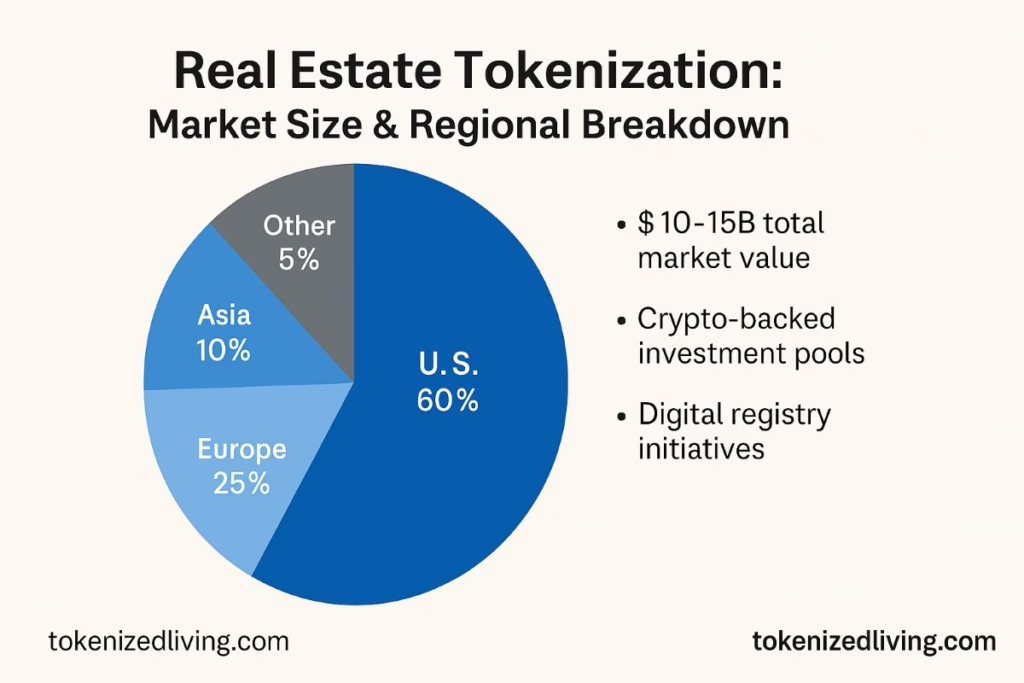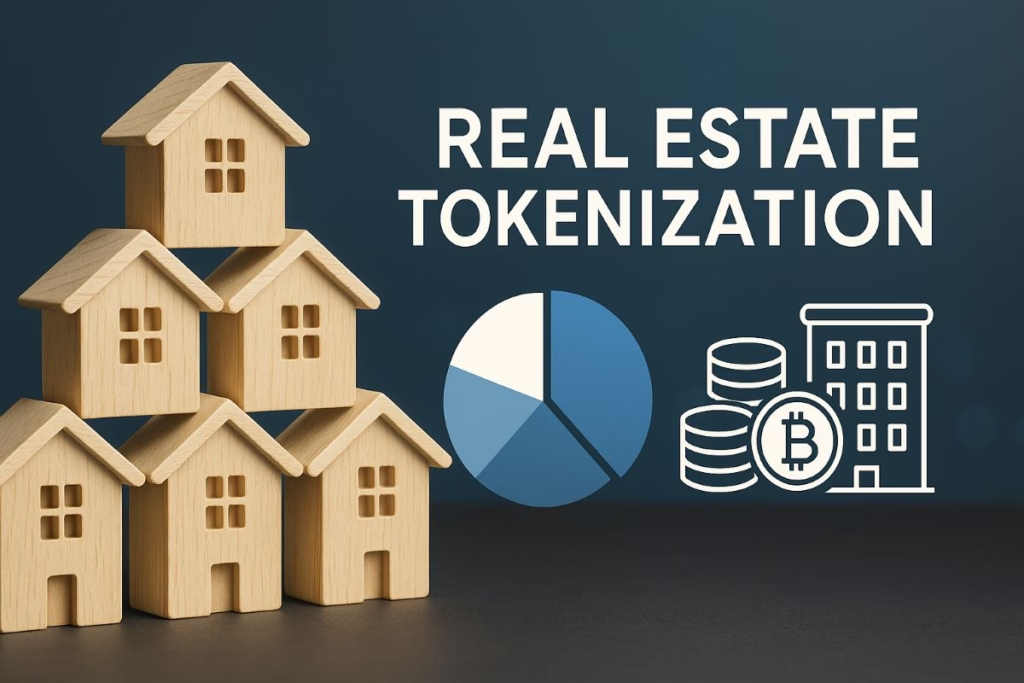Global real estate tokenization 2025 is now valued at $10–15 billion, fueled by U.S. (60%), Europe (25%), and Asia (10%) adoption. Platforms support fractional investment—including crypto‑funded pools—and digital land registries are emerging from Dubai to Chicago.
“Fractional real estate ownership via tokenization is democratizing access to global property markets—and we’re just scratching the surface.”
— Grant Cardone, Real Estate Entrepreneur & Investor
🌍 Real Estate Tokenization: Market Dynamics
🏘️ Market Size & Regional Breakdown
Since early 2025, tokenized real estate assets—including fractional title tokens, property-backed funds, and security tokens—have reached a $10–15 billion market cap. The U.S. dominates with 60% of issuance, followed by Europe at 25%, and Asia at 10%. The remaining 5% consists of early-stage pilots and niche implementations in regions like Latin America and the Middle East.
Significant growth is coming from both institutional-originated token offerings and crowdfunded property tokens. Tokenization is enabling capital formation at scale, bypassing traditional barriers such as large minimum investments and lengthy settlement processes.

💸 Fractional Ownership & Crypto‑Powered Funds
Innovative platforms such as Realt, now allow investors to buy property shares using fiat or even cryptocurrency. For instance, several multi-million-dollar pooled real estate funds now accept Bitcoin and Ethereum, enabling retail investors to access institutional-grade assets.
These platforms offer features like:
- Automated pro-rata income distributions
- Smart-contract enforced profit-sharing
- Transparent audit trails for all token holders
Because tokens represent fractional ownership with full custody of underlying assets, users gain access to portfolios previously only available to accredited investors.

🏛️ Digital Land Registries & Blockchain Title Systems
Cities like Dubai and Chicago are unlocking blockchain-based land registry pilots. These systems enable:
- Tamper-proof title entries stored on-chain
- Instant transfer of ownership during real estate sales
- Reduced title insurance and escrow costs
- Faster closings with fewer intermediaries
Dubai’s pilot, for instance, has seen property transactions completed in hours rather than days. Furthermore, Chicago’s initiative is focused on improving property transfer transparency and reducing fraud through immutable records.
✅ Conclusion: Unlocking the Future of Real Estate
Real estate tokenization 2025 is no longer a theoretical concept—it’s a live, growing market. It is transforming how property is bought, sold, and owned. With billions already tokenized and a new wave of platforms enabling access through crypto and smart contracts, real estate is entering a more accessible, liquid, and efficient era.
Finally, as adoption spreads across continents, tokenization is helping to democratize property investment, reduce bureaucracy, and increase transparency. Whether you’re a retail investor, a fintech innovator, or a government agency, the foundations being laid today are reshaping global real estate for decades to come.
❓ FAQs: Real Estate Tokenization Explained
It’s the process of converting physical property rights into digital blockchain tokens, enabling fractional ownership and on-chain trading.
Valued at $10–15 billion globally, with strong traction in the U.S., Europe, and Asia primarily via tokenized funds and fractional platforms.
Yes—some platforms now allow contributions in Bitcoin or Ethereum, with smart contracts managing payouts and ownership.
These are blockchain-based record systems for property titles—offering secure, instant transfer, reduced intermediaries, and auditability.
Retail investors gain exposure to real estate at low minimums
Institutions gain liquidity and access to scalable capital
Cities/governments improve record integrity and transaction efficiency
Risks include legal uncertainty around property rights, low liquidity for tokenized assets, platform security and trust issues, and evolving regulation.
We use AI tools to enhance research and drafting, always under human supervision.

